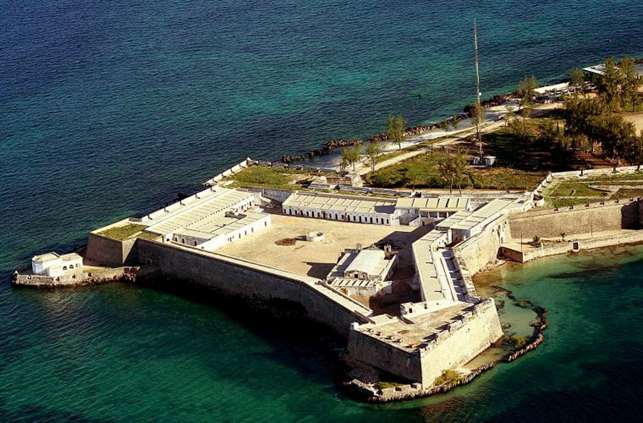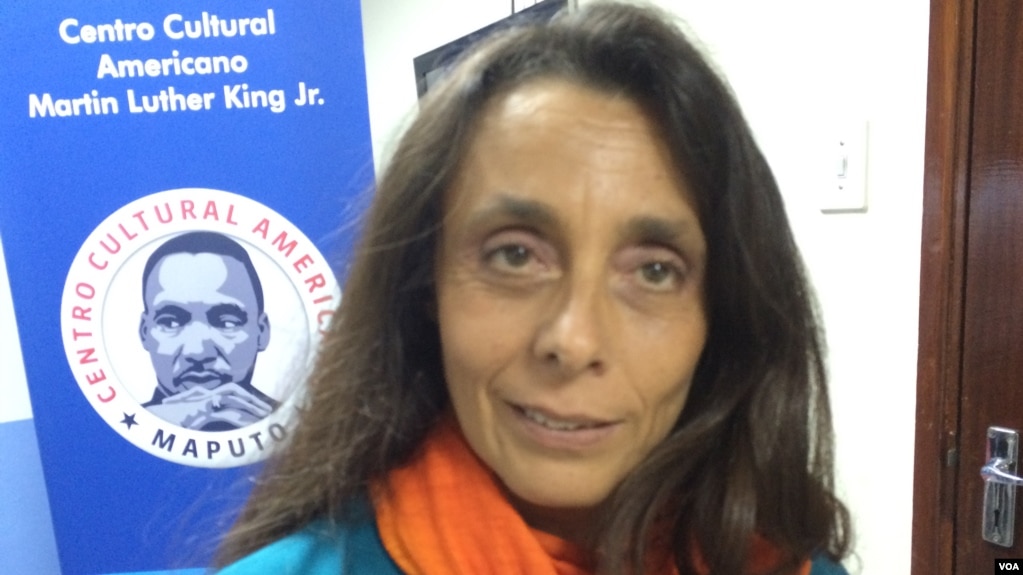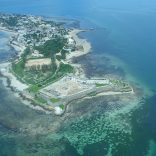Camões Half Millennium International Congress begins in Maputo with Mozambique Island in the ...
New Island of Mozambique archaeology centre to trace slave routes

File photo / Aerial view of Ilha de Moçambique
The Island of Mozambique will have a new archeology centre later this year, the first of its kind in the country and one of the few on the continent.
Funded by the Government of the United States of America through the Ambassador’s Fund for the Preservation of Cultural Heritage, it will focus mainly on research and documentary archive on slave routes and wrecked slave ships.
Thousands of slaves left for various destinations, including the American continent, from Mozambique and other parts of Africa, and, while the slave trade ended long ago, the evidence and material testimony of the period still exists today.
This heritage however could disappear forever if measures are not taken, and it was with this in mind that it was decided to launch the Slave Wreck Project, which will study the route of slave ships locate the wrecks of those which sank.
Ricardo Teixeira Duarte, a professor at the Eduardo Mondlane University, is the director of the project, entitled’ Preservation and Protection of the Underwater and Terrestrial Cultural Heritage Endangered of the Global Slave Trade on the Island of Mozambique’.
The initiative is supervised by the Ministry of Culture and Tourism with the involvement of the Department of Archeology and Anthropology of the Faculty of Arts and Social Sciences of Eduardo Mondlane University.
Located about 200 kilometers from Nampula, the Island of Mozambique is a UNESCO World Heritage Site.
According to Yolanda Teixeira Duarte, a researcher at Eduardo Mondlane University and George Washington University in the United States, it is hoped to set up the centre later this year.
The US Government has made funding available through its embassy in Maputo, and US Ambassador Dean Pittman is said to be very interested in the project, declaring that US$187,000 had been budgeted for the project.

It is possible that research might confirm that many Americans are descendants of slaves taken from Mozambique. The initiative, however, is multinational, involving the United States, Brazil, Cuba, Senegal, South Africa, the United Kingdom and Uruguay.












Leave a Reply
Be the First to Comment!
You must be logged in to post a comment.
You must be logged in to post a comment.